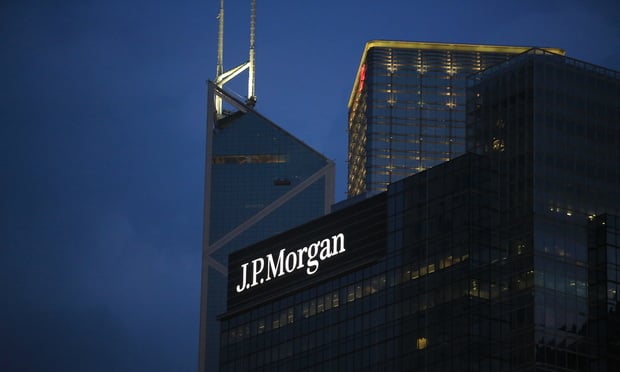Corporate bond sales worldwide are faltering after setting arecord in the first quarter as doubts about the strength of theeconomic recovery and Europe's sovereign-debt crisis resurface.
|From the U.S. to Europe and Asia, issuance has fallen to thelowest levels of the year in the past two weeks, according to datacompiled by Bloomberg. Offerings this month of $87 billion fromborrowers led by Deere & Co., the largest maker of agriculturalequipment, and Montreal-based Royal Bank of Canada compare with aweekly average of $89.9 billion in the first three months of2012.
|Sales are dwindling even as yields on bonds have fallen almost 1percentage point from last year's high of more than 5 percent inOctober, showing reduced confidence in the global outlook amongborrowers. Last week, International Monetary Fund Managing DirectorChristine Lagarde singled out a worsening of the European debtturmoil as the largest risk to growth, while adding that threats tothe economy have diminished.
|“You've kind of had things turn tail over the last couple ofweeks,” said Thomas Chow, a money manager at Delaware Investmentsin Philadelphia with about $170 billion under management, of which$130 billion is invested in fixed-income assets. “The message isthat we're not out of the woods yet by any means, and that themarket continues to find faults and problems with any solution todate that's been presented.”
|Yields on corporate bonds from the riskiest to the mostcreditworthy declined to 4.17 percent as of April 13, according toBank of America Merrill Lynch's Global Broad Market Corporate &High Yield index. While that's down from 5.08 percent on Oct. 10,the average has climbed from 4.12 percent on March 2, the lowestsince November 2010.
|“Corporations are still in a better position if they have toraise money,” Greg Tornga, head of fixed income at Edge AssetManagement in Seattle, which manages about $22 billion, said in atelephone interview. “Corporations have pulled forward their needsfor the year and they've now run out of demand, but they don'tnecessarily need to access the market.”
|Elsewhere in credit markets, the extra yield investors demand tohold corporate bonds globally rather than government debenturesexpanded last week by the most in more than four months. The costof protecting U.S. company debt from default rose for a secondweek. Prices on leveraged loans fell and in emerging markets,spreads widened for a fourth week.
|Spreads Widen
|Relative yields on company bonds worldwide rose 6 basis pointslast week to 207 basis points, or 2.07 percentage points, accordingto Bank of America Merrill Lynch's Global Broad Market Corporateindex. That's the biggest rise since spreads widened 18 basispoints in the week ended Nov. 25. Yields on the debt fell to 3.39percent from 3.43 percent on April 5.
|The Barclays Capital Global Aggregate Corporate Index has gained0.02 percent this month, bringing the return for the year to 3.89percent.
|Bonds of Fairfield, Connecticut-based General Electric Co. werethe most actively traded dollar-denominated corporate securities bydealers last week, with 449 trades of $1 million or more, accordingto Trace, the bond-price reporting system of the Financial IndustryRegulatory Authority.
|The Markit CDX North America Investment Grade Index, whichinvestors use to hedge against losses or to speculate oncreditworthiness, climbed 1.9 basis points last week to a mid-priceof 102.1 basis points, according to Markit Group Ltd. The index hasincreased from a one-year low of 85.4 on March 19.
|In London, the Markit iTraxx Europe Index of 125 companies withinvestment-grade ratings increased 11.6 to 143.8. In theAsia-Pacific region, the Markit iTraxx Asia index of 40investment-grade borrowers outside Japan advanced 6 to 170 as of8:26 a.m. in Hong Kong, Royal Bank of Scotland Group Plc pricesshow. The gauge is on course for its highest close since Feb. 2,according to data provider CMA.
|The indexes typically rise as investor confidence deterioratesand fall as it improves. Credit-default swaps pay the buyer facevalue if a borrower fails to meet its obligations, less the valueof the defaulted debt. A basis point equals $1,000 annually on aswap protecting $10 million of debt.
|The Standard & Poor's/LSTA U.S. Leveraged Loan 100 Indexdeclined 0.19 cent to 93.41 cents on the dollar. The measure, whichtracks the 100 largest dollar-denominated first-lien leveragedloans, has dropped from 93.84 on March 28, the highest level sinceAugust.
|Emerging Markets
|Leveraged loans and high-yield bonds are graded below Baa3 byMoody's Investors Service and lower than BBB- by S&P.
|In emerging markets, relative yields increased 12.2 basis pointsto 360.9 basis points, according to JPMorgan Chase & Co.'s EMBIGlobal index. Spreads have widened from 315.7 on March 19, thelowest since Aug. 3.
|Corporate bond sales are slowing after soaring to a record $1.17trillion in the first quarter as companies took advantage of theFederal Reserve holding benchmark interest rates near zero and theEuropean Central Bank made more than a trillion euros ($1.3trillion) available to the financial system with three-year loansto the region's lenders.
|Sales this month have declined 39 percent from $143.5 billion inthe same period of 2011, Bloomberg compiled data show. Issuancelast week of $46.7 billion followed $40.1 billion in the periodended April 6, the fifth straight week of declines in the longeststreak since April 2009.
|In the U.S., investment-grade issuance dropped for the secondweek, plummeting 65 percent from the previous week to $4.9 billion,the lowest level since the end of 2011.
|“There certainly has been a decline in general appetite for anysort of risky asset over the last couple of weeks,” Brett Wander,chief investment officer for fixed-income at Charles SchwabInvestment Management Inc., which has about $220 billion undermanagement, said in a telephone interview. “There was almost a minirisky-asset euphoria that took place in March. Now, both investorsand issuers are taking a deep breath.”
|Royal Bank of Canada, the country's biggest lender, sold C$1.5billion ($1.5 billion) of 2.58 percent senior unsecured notes dueApril 2017 on April 10. The securities yield 107 basis points morethan government debt of similar maturity.
|Moline, Illinois-based Deere's financing arm, John Deere CapitalCorp., sold $1 billion of notes on April 12, split evenly betweenthree- and seven-year maturities, Bloomberg data show. That bringsits total borrowing this year to $2.7 billion, or about 44 percentof its 2011 issuance.
|'A Big Thundercloud'
|Europe's flaring debt crisis remains the biggest risk toworldwide economic growth as the region's governments move toincrease their defenses, Lagarde said April 12 at the BrookingsInstitution in Washington. The IMF chief said she'd scale down herrequest for $600 billion of additional resources even as yields onSpanish bonds approached the level that preceded bailouts ofGreece, Ireland and Portugal.
|Spain's 10-year government bonds have jumped more than 60 basispoints this month to as high as 6.02 percent.
|“Spain is rumbling around in the background like a bigthundercloud that's threatening on the horizon still,” said NorvalLoftus, chief investment officer at Allegra Investment ManagementLtd. in London. “The deals are becoming more cautious.”
|Corporate profit growth stalled in the U.S. last quarter ascompanies from McDonald's Corp. to 3M Co. saw gains in the world'slargest economy eroded by Europe's continuing slump. Earnings atS&P 500 Index companies, excluding financials, are seen gaining0.6 percent in the first and the second quarter from a yearearlier, according to analysts' estimates compiled by Bloomberg,the slowest growth rate since 2009.
|Confidence among U.S. consumers also cooled in April from aone-year high following the slowest month of job growth sinceOctober. First-time applications for jobless benefits unexpectedlyrose the week ended April 7 to 380,000, after employers added halfas many jobs in March compared with February, Labor Departmentfigures showed.
|“The recovery in the United States is still filled withquestions,” Timothy Cox, executive director of debt capital marketsat Mizuho Securities USA Inc. in New York, said in a telephoneinterview. “It really became concerning to the issuers — theydidn't want to sell bonds into a softer market.”
|Bloomberg News
|Copyright 2018 Bloomberg. All rightsreserved. This material may not be published, broadcast, rewritten,or redistributed.
Complete your profile to continue reading and get FREE access to Treasury & Risk, part of your ALM digital membership.
Your access to unlimited Treasury & Risk content isn’t changing.
Once you are an ALM digital member, you’ll receive:
- Critical Treasury & Risk information including in-depth analysis of treasury and finance best practices, case studies with corporate innovators, informative newsletters, educational webcasts and videos, and resources from industry leaders.
- Exclusive discounts on ALM and Treasury & Risk events.
- Access to other award-winning ALM websites including PropertyCasualty360.com and Law.com.
*May exclude premium content
Already have an account? Sign In
© 2024 ALM Global, LLC, All Rights Reserved. Request academic re-use from www.copyright.com. All other uses, submit a request to [email protected]. For more information visit Asset & Logo Licensing.








